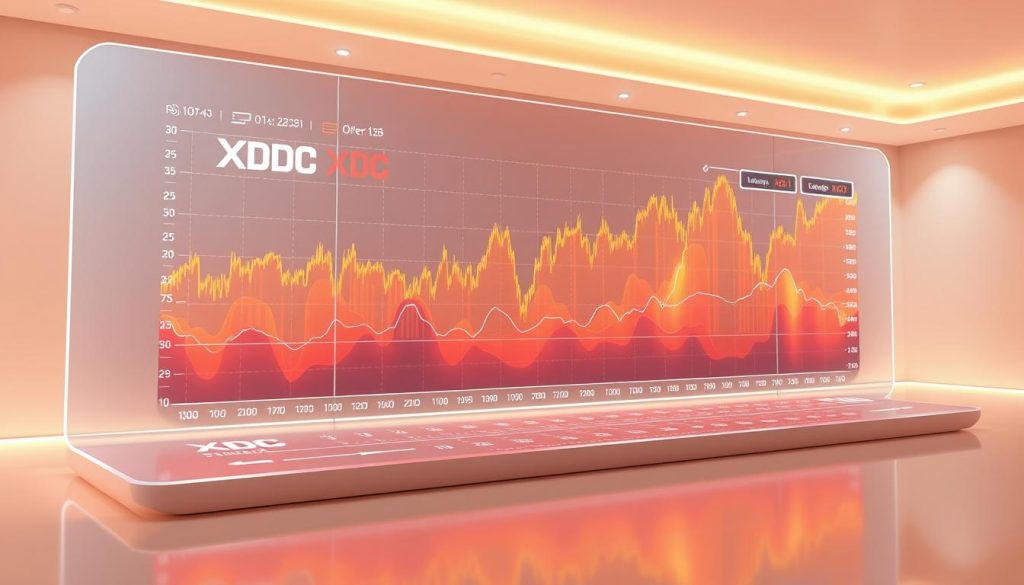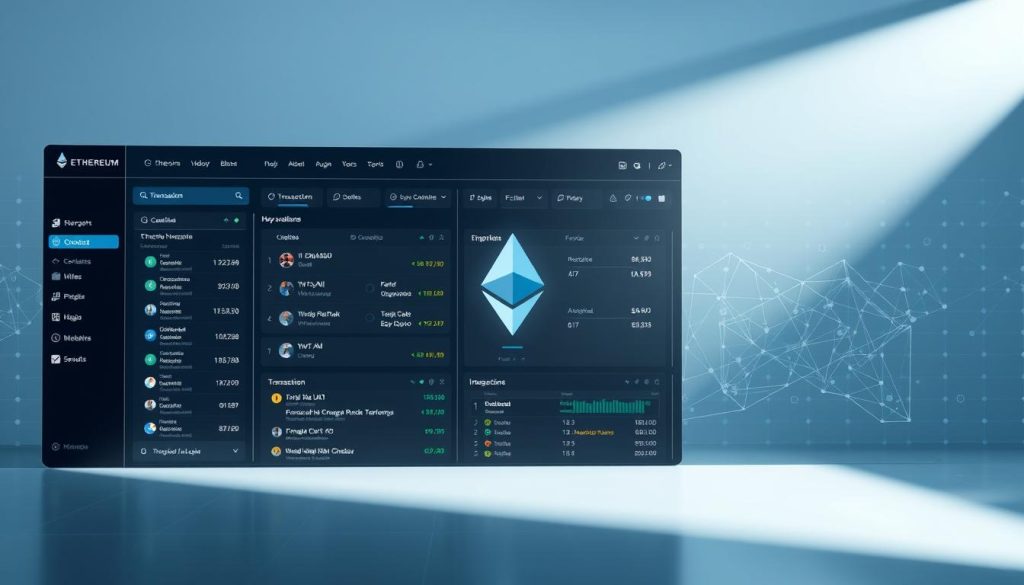By 2024, 98% of crypto exchanges required identity verification. This shift marks the end of digital currency’s wild west era. The landscape has changed dramatically.
When I started, anonymity was the norm. Now, regulations are tight. KYC requirements are everywhere. The “be your own bank” concept has become complex.
This guide explores your right to financial privacy. We’ll discuss practical, anonymous crypto purchase methods that work today. You’ll learn about platforms, tools, and legal considerations.
We’ll also cover pitfalls to avoid. This information is useful if you’re worried about data breaches or identity theft. Or if you simply value financial privacy.
Key Takeaways
- Cryptocurrency anonymity has decreased significantly, with 98% of exchanges now requiring identity verification
- Financial privacy remains a legitimate concern separate from illegal activities
- Multiple practical methods still exist for maintaining privacy when purchasing digital assets
- Understanding current regulations and KYC requirements is essential before attempting anonymous purchases
- This guide provides experience-based, actionable strategies rather than theoretical concepts
- Legal considerations and potential pitfalls will be addressed to help you avoid common mistakes
Understanding the Need for Anonymity in Crypto Purchases
Privacy in crypto has become essential. The shift happened between 2017 and now. Anonymity isn’t about hiding illegal activity. It’s about protecting yourself in a transparent digital world.
Every transaction on a public blockchain is permanently recorded. Your coffee purchase, rent payment, and impulse buys are all visible. Anyone can analyze them if they link your wallet address to you.
The Rise of Privacy Concerns
Privacy concerns in cryptocurrency have grown with mainstream adoption. A 2024 survey found 73% of crypto users worried about financial privacy. This is up from 41% in 2020.
High-profile security breaches and government surveillance sparked these concerns. Exchange hacks have become routine news. Mt. Gox lost 850,000 Bitcoin. Coincheck lost $530 million in NEM tokens.
Financial surveillance is now the norm. KYC-compliant exchanges require government ID and proof of address. This data is stored indefinitely and often shared with government agencies.
Blockchain analytics companies can trace transactions with frightening accuracy. They can link wallets to real-world identities and map your entire history. Ironically, crypto has created the most transparent financial system ever.
The Evolution of Cryptocurrency Regulations
Crypto regulations have quickly evolved from non-existent to suffocating. What’s compliant today might be illegal tomorrow. The regulatory landscape changes rapidly.
In the US, the Bank Secrecy Act now applies to crypto exchanges. FinCEN requires detailed KYC procedures. The IRS treats crypto as property, demanding detailed tax reporting.
Europe’s MiCA regulation standardizes rules across EU states. It also mandates extensive data collection and sharing between platforms and regulators.
Some countries took extreme measures. China banned crypto trading entirely. India fluctuated between bans and heavy taxation. Russia created a confusing framework for crypto ownership.
Predictions for 2025 indicate even tighter compliance requirements. The FATF “travel rule” is being implemented globally. Analysts expect crypto privacy tools 2025 to face increased scrutiny from regulators.
User Motivations for Staying Anonymous
People seek anonymity in crypto for various legitimate reasons. Understanding these motivations explains why blockchain privacy technology keeps developing despite regulations.
Privacy advocates believe financial privacy is a fundamental human right. They argue privacy should be the default, not the exception.
Security-conscious individuals don’t want their finances public. Large balances on public blockchains make holders targets for hacks and threats.
Geographic necessity drives many toward anonymity. People in countries with unstable banking or authoritarian governments need financial privacy. For them, crypto privacy tools 2025 are lifelines, not luxuries.
Everyday users value discretion for various reasons. They may not want employers seeing their spending. Or they’re donating to controversial causes. Some just believe buying coffee shouldn’t create a permanent record.
Anonymity and privacy exist on a spectrum. Your position depends on your circumstances, threat model, and values. There’s no one-size-fits-all solution. That’s why understanding your options matters.
The Current Landscape of Cryptocurrency Anonymity
Crypto anonymity has evolved significantly since 2016. The ecosystem now boasts a wide array of privacy tools. These cater to various needs, from bulletproof anonymity to basic protection for everyday users.
The landscape is both more sophisticated and accessible. You don’t need advanced tech skills to use privacy coins effectively. However, understanding the technology can be beneficial.
Privacy Coins Leading the Anonymity Movement
Monero remains a top choice for private transactions. It uses ring signatures, stealth addresses, and RingCT to ensure privacy. Privacy isn’t optional—it’s mandatory with Monero, protecting every transaction automatically.
Zcash offers an interesting alternative using zk-SNARKs for private transactions. However, its optional privacy can make truly private transactions stand out. Newer players like Firo use the Lelantus protocol for privacy.
Projects building privacy layers on existing blockchains are gaining traction. These solutions maintain privacy while accessing decentralized applications on major chains. Users now have various options based on their specific privacy needs.
Real Numbers Behind Anonymous Crypto Activity
Tracking anonymous crypto purchases is challenging by design. However, proxy metrics reveal interesting trends. Monero maintained daily trading volumes of $100-300 million throughout 2024, indicating strong demand.
Before sanctions, Tornado Cash processed over $7 billion in total volume. Decentralized privacy protocols continue operating despite regulatory challenges. Anonymous purchase methods have diversified beyond privacy coins.
The Bitcoin Lightning Network has grown exponentially, offering improved privacy. Peer-to-peer exchanges without KYC verification have increased, though many operate in legal gray areas. Bitcoin ATMs often allow smaller purchases without identification.
Where Privacy Technology Is Heading in 2025
Four major trends are reshaping anonymous cryptocurrency purchase methods in 2025. These trends extend patterns already in motion. Layer 2 privacy solutions are gaining significant momentum.
Technologies built on major blockchains add privacy features without new coins. This allows privacy while using established cryptocurrencies with deep liquidity. Regulatory pressure on centralized privacy services will intensify.
Decentralized alternatives are multiplying faster than regulators can target them. Privacy-by-default features are appearing in mainstream wallets. This makes privacy tools accessible to regular users.
Clearer legal frameworks are emerging in some jurisdictions. This may create safe harbors for privacy tools to operate without constant threat. Some countries may distinguish between legitimate privacy and illicit activity.
Here’s a breakdown of how different privacy approaches compare right now:
| Privacy Method | Anonymity Level | Ease of Use | Regulatory Risk |
|---|---|---|---|
| Monero Transactions | Very High | Moderate | Moderate |
| Bitcoin Lightning | Moderate | High | Low |
| P2P Non-KYC Exchanges | High | Low | High |
| Decentralized Mixers | High | Moderate | Very High |
The market is maturing, though the path forward seems messy. Privacy technology is improving faster than surveillance technology in this space. Tools for protecting financial privacy in 2025 are far superior to those from three years ago.
The tension between privacy and regulation persists. However, we’re moving towards a more nuanced understanding of financial privacy. People seeking privacy now have legitimate, accessible options for protecting their financial activities.
Tools and Platforms for Anonymous Crypto Buying
The crypto landscape offers various ways to buy anonymously. These options fall into three main categories. Each has its own privacy level and ease of use.
I’ve personally tested most of these platforms. They all have unique features and learning curves. Your choice depends on your privacy needs and tech skills.
Decentralized Exchanges (DEXs)
Decentralized exchanges without KYC are easy to use for anonymous crypto trading. Uniswap, PancakeSwap, and THORChain don’t need identity checks. They work without a central authority.
Using these platforms is simple. Connect your wallet, pick your tokens, and swap. No personal info needed – just your wallet and the blockchain.
I’ve used Uniswap often. Once you get the hang of fees and settings, it’s easy. The interface looks complex at first, but it’s mainly just clicking “swap”.
You typically need to already own some crypto to use them. DEXs swap one crypto for another. They don’t let you buy with regular money.
Some DEXs like Incognito and SecretSwap offer extra privacy. They hide more transaction details. But they have fewer tokens and less trading volume.
Peer-to-Peer (P2P) Marketplaces
P2P crypto trading anonymously connects you directly with other traders. Platforms like Bisq, LocalCryptos, and HodlHodl support private payment methods. These include cash by mail or in-person meetings.
Bisq stands out as fully decentralized software. It’s not a website that can be shut down. The platform runs through the Tor network for extra privacy.
I’ve done cash trades in person using these platforms. We met at a coffee shop and confirmed the transaction on our phones. It’s old-school but effective.
P2P trading has some downsides. Transactions take longer and rates may be less favorable. You also need to check the other trader’s reputation carefully.
Privacy Coins
Privacy coins like Monero and Zcash hide transaction details by default. They work as both an asset and a privacy tool. Your transfers become much harder to trace.
These coins act as privacy utilities, not just investments. When you send Monero, the transaction details stay hidden. This differs from Bitcoin, where all transfers are public.
Getting privacy coins anonymously is tricky. You’ll need to use other methods first. Many exchanges have stopped listing them due to regulations.
I usually buy privacy coins through DEXs or P2P platforms. Then I use them for transactions needing maximum privacy. It’s an extra step but worth it.
| Platform Type | Best For | Privacy Level | Ease of Use | Primary Trade-Off |
|---|---|---|---|---|
| DEXs (Uniswap, PancakeSwap) | Quick swaps between cryptocurrencies | High (with fresh wallet) | Medium | Requires existing crypto holdings |
| P2P Marketplaces (Bisq, LocalCryptos) | Converting fiat to crypto anonymously | Very High | Low to Medium | Longer transaction times, variable rates |
| Privacy Coins (Monero, Zcash) | Maintaining ongoing transaction privacy | Maximum | Medium | Difficult initial acquisition |
| Privacy-Enhanced DEXs (Secret Network) | Swapping with transaction obfuscation | Very High | Medium | Lower liquidity, fewer token options |
Your best platform depends on your starting point and goals. DEXs work well if you already have crypto. P2P markets are necessary if you’re starting with regular money.
For the strongest privacy, combine these tools. Use P2P to get your first crypto anonymously. Then swap through DEXs to privacy coins. Finally, use those privacy coins for your actual transactions.
How to Use Privacy Coins Effectively
Privacy coins make anonymous transactions their core feature. They use advanced math to hide transaction details. These coins offer a direct path to true transaction privacy.
The tech behind privacy coins is both clever and elegant. It makes tracing transactions nearly impossible, even with vast resources. This privacy relies on math, not trust.
Understanding the Major Privacy Protocols
Monero (XMR) is the top choice for private transactions. Every transaction is private by default. It uses ring signatures to mix your transaction with others.
Stealth addresses hide the recipient’s info on the blockchain. RingCT conceals the amount sent. This mandatory privacy removes the risk of user error.
Zcash (ZEC) uses zk-SNARKs technology. Zcash offers both shielded (private) and transparent (public) transactions. Most exchanges only support transparent Zcash transactions for compliance reasons.
For true privacy, use shielded addresses starting with “z”. Ensure your counterparty does too. It’s powerful when used right, but can be tricky.
Litecoin added MimbleWimble for optional privacy. Dash offers PrivateSend mixing, but it’s less robust than Monero. The legal status of crypto mixing varies by location.
Practical Steps for Private Transactions
Using privacy coins well involves more than just buying them. Here’s how to do it right:
First, buy privacy coins anonymously. Use DEXs or P2P platforms we discussed earlier. Avoid KYC exchanges to protect your identity.
Second, use wallets that support privacy features. For Monero, try the official GUI wallet, Cake Wallet, or Monerujo. These are key to using the privacy protocol.
Third, consider running your own node. This prevents leaks about your transactions. If that’s not possible, use a trusted remote node.
Fourth, maintain good security practices:
- Route your connection through Tor or a trusted VPN to mask your IP address
- Never reuse addresses, even though some privacy coins handle this automatically
- Consider the privacy implications of where you’re spending—the merchant’s records still exist
- Avoid discussing your holdings or transactions on platforms that log data
- Keep transaction timing irregular to avoid pattern analysis
The crypto mixing services legal status is complex. Services like Tornado Cash faced sanctions in 2022. This created uncertainty but didn’t end the technology.
Privacy coins exist in a legal gray area. They’re not illegal in most U.S. states, but many exchanges won’t list them. Using them might attract extra attention.
Privacy tools are legal, but hiding illegal activity is not. It’s like encryption – legal to use, illegal for crimes.
Real-World Privacy Coin Applications
Privacy coins have many legitimate uses. They help people send money across borders with strict controls. This supports families while avoiding bank fees and government oversight.
Journalists in dangerous areas use privacy coins to get funding safely. This protects donors from retaliation. It’s a safety measure when leaking info could mean jail.
Some consumers seek out merchants who accept Monero. They want to avoid creating financial records that data brokers might exploit. These buyers value their privacy.
A business owner used privacy coins to pay international contractors. This solved issues with banks flagging payments as suspicious. Monero eliminated the middleman entirely.
In another case, someone facing medical bankruptcy used privacy coins. They preserved assets for their family’s future during legal proceedings. It shows real-world needs beyond criminal intent.
Success with privacy coins depends on proper use. Those who follow best practices achieve their privacy goals. Those who don’t often leave unintended traces.
Privacy coins are powerful tools that need education to use well. They’re not automatic privacy solutions. When used correctly, they offer mathematically proven privacy.
Step-by-Step Guide to Buying Crypto Anonymously
This guide shows how to buy crypto anonymously in 2025. We’ll cover wallet setup and your first purchase. The process takes time but offers valuable privacy benefits.
We’ll explore three main phases: wallet security, platform selection, and purchase execution. Each step builds on the previous one. Follow them in order for best results.
Setting Up a Secure Wallet
Your wallet choice is crucial for privacy. Non-custodial wallets for privacy give you control over your private keys. This prevents companies from accessing your data.
For Bitcoin, try Wasabi Wallet or Sparrow Wallet. They include CoinJoin features that mix your coins with others. MetaMask works for Ethereum, but use a new address not linked to your identity.
For Monero, use the official Monero GUI wallet or Cake Wallet. Cake Wallet supports both Bitcoin and Monero, making swaps easier.
- Download wallet software only from official sources, never third-party sites
- Create your wallet on a clean device without malware
- Write down your seed phrase on paper, never store it digitally
- Verify your seed phrase backup before sending any funds
- Keep this wallet completely separate from any KYC exchanges
Keep your anonymous wallet separate from identified ones. Think of it as a new financial identity. This helps maintain your privacy.
Never reuse addresses between your anonymous wallet and any wallet you’ve used with identity-verified exchanges. This mistake can link everything together.
Choosing the Right Exchange or Platform
Your platform choice depends on your payment method and location. Different options suit different situations. Knowing when to use each one is important.
For cash purchases, use Bisq or LocalCryptos to find local sellers. Meet in public spaces like coffee shops. Always prioritize your safety when meeting in person.
Bisq offers the most privacy for online buying. It’s fully decentralized but has a learning curve. HodlHodl is more user-friendly but centralized.
Bitcoin ATMs work for smaller amounts, usually up to $500 without ID. However, their fees can be high, ranging from 10-15%.
For swapping crypto, use decentralized exchanges like TradeOgre or FixedFloat. They don’t require verification for reasonable amounts. Changelly sometimes needs verification for larger transactions.
| Platform Type | Privacy Level | Typical Fees | Best Use Case |
|---|---|---|---|
| Bisq (P2P DEX) | Highest | 0.1-0.5% maker/taker | Maximum anonymity, any amount |
| Bitcoin ATMs | High | 10-15% | Small purchases under $500 |
| LocalCryptos (P2P) | High | 0.25-1% | Cash in person, various payment methods |
| HodlHodl (P2P) | Medium-High | 0.5-0.6% | User-friendly interface, global reach |
| TradeOgre (DEX) | Medium | 0.2% | Swapping to privacy coins quickly |
Making Your First Anonymous Purchase
Let’s walk through a Bisq transaction. This method offers the most privacy for how to buy crypto anonymously 2025.
Download Bisq from the official website and install it. Create a security deposit wallet during setup. Both parties lock up a small Bitcoin amount to prevent fraud.
Browse offers or create a buy order. For example, you find someone selling Bitcoin for cash by mail. Start the trade through Bisq.
The seller provides their mailing address. Send cash using a PO box or blank return address. Verify if the seller accepts this beforehand.
Mark the payment as sent in Bisq after mailing. The seller confirms receipt and releases the Bitcoin. This process usually takes 3-7 days.
The key to successful anonymous purchases is patience. Rushing leads to mistakes that compromise your privacy.
Swap your Bitcoin for Monero using TradeOgre or FixedFloat. These services don’t require KYC for reasonable amounts. Transfer Bitcoin to the swap service.
Specify Monero as your desired currency. Provide your Monero wallet address from your secure wallet. Complete the swap. Monero arrives in your wallet within 15-30 minutes.
The complete process from start to finish:
- Set up your secure non-custodial wallet
- Choose and install your P2P platform (Bisq, LocalCryptos, etc.)
- Find a seller and initiate the trade
- Send payment using anonymous methods
- Receive Bitcoin to your anonymous wallet
- Swap Bitcoin for Monero using a no-KYC service
- Store Monero in your secure wallet
This process can take hours or days. It’s slower than standard exchanges but ensures privacy. Start with small amounts to practice.
Test the process with $100 or less at first. There’s no customer service to call if something goes wrong, so understand each step thoroughly.
Evidence Supporting Anonymous Purchases
Research and real-world evidence support anonymous bitcoin acquisition. Privacy advocates need data, studies, and examples to prove cryptocurrency anonymity’s effectiveness. These findings often challenge mainstream financial media narratives.
The evidence reveals a more complex picture than extreme viewpoints suggest. It goes beyond simple arguments of criminality or absolute privacy rights.
Studies and Reports on Crypto Anonymity
Chainalysis, a top blockchain analysis firm, provides valuable insights on privacy tool effectiveness. Their 2024 report revealed that privacy coins account for less than 1% of all cryptocurrency transactions.
This statistic challenges the idea that anonymous transactions are mainly used for illegal activities. If true, we’d expect to see much higher adoption rates among criminals.
Academic institutions are seriously studying blockchain privacy technology. MIT and Stanford researchers have examined various privacy approaches. A Carnegie Mellon study showed that even Bitcoin can offer good privacy with specific techniques.
Most users don’t follow these privacy practices. The technical knowledge required limits effective privacy to more sophisticated users. This gap between theory and practice is a common research theme.
The Cambridge Centre for Alternative Finance provides comprehensive data on global cryptocurrency usage. Their research shows that privacy concerns are a top priority for users. This is especially true in regions with weak rule of law.
Analyst Predictions for 2025 Market Trends
Analysts predict several key trends for anonymous bitcoin acquisition in 2025. Regulatory pressure will increase, but technology will evolve faster. This creates ongoing tension between government oversight and privacy innovation.
Major predictions include privacy features becoming mainstream and an expanded user base. Analysts also expect regulatory fragmentation across countries and increased adoption of layer-2 privacy solutions.
ARK Invest suggests that cryptocurrency privacy could follow the adoption curve of encrypted messaging. What seems niche today might become the default expectation tomorrow, similar to WhatsApp and Signal.
Real-World Examples of Anonymous Transactions
Real-world examples demonstrate legitimate privacy needs in cryptocurrency. These range from everyday financial efficiency to truly heroic applications. I’ve personally witnessed and participated in several of these use cases.
Documented examples include international remittances, humanitarian crisis response, and journalism support. Privacy-focused methods also help protect savings in countries experiencing severe economic instability.
In Venezuela, cryptocurrency anonymity features helped preserve family savings during economic collapse. When governments restrict currency conversion, privacy becomes a necessity for financial security.
The evidence supporting legitimate anonymous cryptocurrency purchases continues to grow. Each year brings more research, data, and examples showing privacy’s value beyond criminal activity stereotypes.
Legal Considerations for Anonymous Crypto Buying
Crypto privacy laws are complex and ever-changing. I’ve spent hours researching regulations to understand what’s legal. Here’s what I’ve learned from my experience.
In the United States, buying cryptocurrency anonymously isn’t illegal. The confusion stems from how regulations apply to different ecosystem participants.
What the Law Actually Says About Anonymous Purchases
Current laws don’t ban anonymous crypto purchases. They regulate businesses like exchanges and money transmitters. These entities must follow Bank Secrecy Act (BSA) rules.
Platforms, not individual buyers, must verify customer identities. The IRS treats cryptocurrency as property for taxes. You must report capital gains when selling or exchanging.
Anonymous buying doesn’t change your reporting duty. You’re responsible for tracking and reporting all transactions. The legal risk lies in failing to report taxable events.
In August 2022, the U.S. Treasury sanctioned Tornado Cash, an Ethereum mixing protocol. This move complicated the legal status of crypto mixing services.
The government claimed it helped launderers hide transactions. OFAC sanctioned code itself, raising First Amendment questions. Some developers were arrested, while experts argued the sanctions were unconstitutional.
As of 2025, the legal situation remains unclear. Privacy coins like Monero and Zcash are still legal to own. However, some exchanges have delisted them due to regulatory pressure.
| Activity | Legal Status | Key Consideration |
|---|---|---|
| Buying crypto without KYC | Legal | Still requires tax reporting of gains |
| Owning privacy coins | Legal | Some exchanges won’t list them |
| Using mixing services | Legally unclear | Tornado Cash sanctions created uncertainty |
| Hiding taxable gains | Illegal | Tax evasion regardless of method used |
What’s Coming: Regulatory Changes Through 2025
The regulatory landscape is tightening. FinCEN has proposed rules for reporting large crypto transactions. The 2021 Infrastructure Act expanded the “broker” definition to include DeFi protocols.
Implementation details are unclear, but regulators want visibility into decentralized transactions. Here’s what I predict for 2025:
- Increased DeFi oversight: Expect attempts to require decentralized platforms to implement some form of transaction monitoring, though enforcement will be challenging
- Exchange restrictions: More U.S.-based exchanges will likely delist privacy coins or limit access to mixing services to reduce regulatory risk
- Reporting requirements: Possible implementation of reporting obligations for individuals holding cryptocurrency above certain values, similar to Foreign Bank Account Reporting (FBAR) requirements
- Cross-border coordination: The U.S. will likely push for international standards on crypto privacy, affecting how platforms operate globally—much like how regulatory frameworks in different jurisdictions create compliance challenges across borders
Enforcement will remain challenging. Crypto technology is borderless, open-source, and resistant to central control. Regulators can pressure businesses but can’t easily prevent peer-to-peer transactions.
Staying Legal While Maintaining Privacy
Privacy and legality can coexist with the right approach. Understanding your obligations makes everything clearer. Keep detailed records of all transactions, even anonymous ones.
Track the date, amount, exchange rate, and purpose of each transaction. This helps you calculate and report taxes accurately.
Never use privacy tools to hide taxable income. That’s tax evasion, which is illegal regardless of method. Consider consulting a crypto-savvy CPA for help.
The law generally targets illicit use of privacy tools, not the tools themselves. The question isn’t whether you used privacy coins or mixing services—it’s whether you met your legal reporting obligations and weren’t hiding criminal proceeds.
For practical compliance, follow this checklist:
- Track all cryptocurrency acquisitions with dates and dollar values
- Calculate capital gains when selling or exchanging (including crypto-to-crypto trades)
- Report gains on Schedule D of your tax return, even if the exchange didn’t send you a 1099
- Consult a tax professional familiar with cryptocurrency if your situation is complex
- Don’t assume anonymity equals invisibility—blockchain analysis is sophisticated and constantly improving
The crypto mixing services legal status and anonymous purchase methods are evolving rapidly. Stay informed through legal resources. Maintain proper records to adapt as regulations change.
You can legally use decentralized tools and privacy coins while fulfilling tax duties. It requires careful attention to actual requirements versus automatic platform reporting.
Common Pitfalls to Avoid
Privacy-focused crypto buyers must understand mistakes that can drain wallets and compromise security. The anonymous crypto landscape rewards caution and punishes carelessness. This environment is riskier than traditional exchanges.
Outside regulated KYC platforms, your judgment becomes your only protection. Freedom comes with responsibility that many buyers underestimate. Problems can arise quickly if you’re not careful.
Risks of Using Anonymous Platforms
On decentralized exchanges without KYC, you’re largely on your own when problems occur. Traditional exchanges offer customer support and dispute resolution. Anonymous platforms don’t provide these safety nets.
I experienced this during a P2P transaction gone wrong. The seller claimed they sent payment, but nothing appeared in my account. With no central authority, resolving the issue took weeks.
Smart contract vulnerabilities pose another serious risk. DeFi protocols have lost millions to exploits. Using decentralized exchanges means trusting code that may have flaws hackers can exploit.
Counterparty risk in P2P trading is significant because you’re trusting individuals, not institutions. Even platforms with reputation systems can’t eliminate this risk entirely. Someone with a perfect record could still scam on a large transaction.
The trade-off is clear: more privacy means more personal responsibility. You accept higher risk for anonymity. This isn’t necessarily bad, but awareness is crucial.
Scams and Fraudulent Activities to Watch Out For
The scam landscape in anonymous crypto is diverse and ever-changing. I’ve seen many types based on personal experience and community reports.
Fake wallet applications are a major threat. I almost downloaded a counterfeit Monero wallet from a third-party app store. These malicious wallets steal your seed phrases or private keys immediately.
Phishing websites mimic real DEX interfaces with alarming accuracy. They copy designs of platforms like Uniswap, waiting for wallet connections. Once you approve a transaction, they drain everything.
Exit scams from smaller P2P platforms follow a pattern. A new platform builds reputation, attracts users, then vanishes with all funds. Stick with established platforms that have operated for years.
| Scam Type | How It Works | Red Flags | Prevention Method |
|---|---|---|---|
| Fake Wallets | Malware disguised as legitimate wallet apps that steal credentials | Available only on unofficial stores, poor reviews, unknown developers | Download only from official websites, verify signatures |
| Phishing Sites | Clone sites that mimic real exchanges to steal wallet access | Slight URL misspellings, missing security certificates, urgent prompts | Bookmark legitimate sites, check URLs character by character |
| Overpayment Scams | Buyer “accidentally” overpays via reversible method, requests crypto refund, then reverses payment | Pressure to act quickly, reversible payment methods like PayPal, new account | Accept only irreversible payments (cash, crypto), ignore urgency tactics |
| Fake Mixing Services | Promises to anonymize your Bitcoin but simply steals it | No verifiable history, unrealistic promises, no open-source code | Use only established mixers with years of operation and auditable code |
Overpayment scams in P2P trades are particularly clever. Someone “accidentally” overpays through a reversible method and asks for a crypto refund. Later, they reverse the original payment, leaving you without recourse.
Only accept irreversible payment methods for anonymous trades. Cash deposits, physical cash, or cryptocurrency are safest. Avoid PayPal, credit cards, or anything that can be charged back.
Fake mixing services promise to anonymize your Bitcoin for privacy, then steal it. Use established services with open-source code and years of operational history.
Importance of Researching Before Buying
Research is crucial for survival in anonymous crypto. I’ve developed a checklist for new platforms and counterparties. This helps me avoid potential scams and risks.
Before using a DEX, check for third-party security audits of smart contracts. Companies like CertiK publish reports. Avoid platforms without audits or those unwilling to share results.
For P2P transactions, review the other person’s reputation history and trade volume. Check their completion rate and platform tenure. I learned this lesson the hard way.
Always test with small amounts first. Send $20 worth before $2,000. This tests the entire process: counterparty reliability, payment method, and platform mechanics. It’s cheap insurance against fraud.
Understanding privacy tools is crucial. Monero hides transaction details, but sharing your address publicly can compromise privacy. Zcash requires both parties to use shielded addresses for full protection.
Join communities where experienced users share knowledge. Forums and Discord servers offer valuable insights. I’ve learned more from community discussions than official documentation in many cases.
Approach every anonymous crypto purchase with healthy skepticism. Question deals that seem too good to be true. Be willing to walk away if something feels off.
Your instincts will develop over time. At first, allow yourself to be cautious. In anonymous crypto buying, thorough due diligence is essential.
FAQ: Common Questions About Buying Crypto Anonymously
Privacy in cryptocurrency raises legitimate questions. You deserve straight answers backed by practical experience. Let’s address the big three concerns about buying crypto anonymously in 2025.
These are practical concerns affecting real decisions about money, privacy, and legal compliance.
Is It Completely Legal to Buy Crypto Anonymously?
The nuanced answer is yes, with important limitations. In most Western countries, buying crypto without ID is generally legal.
No federal law requires ID for peer-to-peer or decentralized platform purchases. The confusion stems from mixing individual privacy rights with business compliance obligations.
Legality depends on what you do with that anonymity. Using it for tax evasion or illegal activities is unlawful.
However, buying anonymously for legitimate privacy reasons is legal. These include protecting financial info and maintaining personal security.
Remember: your tax obligations don’t change based on anonymous purchases. You must still report capital gains when selling or exchanging cryptocurrency.
Businesses face different rules. Exchanges and services must comply with KYC and AML regulations. Individuals using decentralized tools generally don’t have these obligations.
The legal landscape evolves rapidly. Stay informed about regulatory changes to protect yourself.
What Are the Safest Methods for Anonymous Transactions?
“Safest” has multiple dimensions: security, privacy, and legal safety. Each requires different approaches when evaluating crypto privacy tools in 2025.
For maximum privacy, use Monero through a non-custodial wallet. Acquire it via peer-to-peer cash transactions or decentralized exchanges.
For security against theft, use established decentralized exchanges with audited smart contracts. Platforms like Uniswap or THORChain have solid track records.
For legal safety, use privacy tech for legitimate purposes while keeping tax records. This protects you if questions arise later.
A balanced method includes:
- Use Bisq or HodlHodl to purchase Bitcoin with a trusted payment method
- Swap that Bitcoin for Monero using a no-KYC exchange like TradeOgre
- Store the Monero in the official Monero wallet on a device you control
- Connect through Tor or a quality VPN for additional privacy layers
Match the method to your specific threat model. Different threats call for different approaches.
How Do I Ensure My Privacy Is Protected?
Privacy in crypto requires a holistic approach across multiple layers. No single tool provides complete protection.
First layer: Use the right tools. Choose privacy-focused cryptocurrencies, non-custodial wallets, and decentralized exchanges.
Second layer: Practice good operational security. Use Tor or a trusted VPN. Never reuse addresses across transactions.
Third layer: Understand what each tool protects. Monero encrypts transaction details but doesn’t hide network metadata.
Fourth layer: Mind your on-ramps and off-ramps. Converting between fiat and crypto anonymously is challenging.
Fifth layer: Consider your threat model realistically. Casual corporate data mining is easier to protect against than state-level surveillance.
Sixth layer: Stay educated. Privacy technology evolves constantly. Follow privacy-focused crypto communities to stay informed.
Perfect privacy is nearly impossible in the digital age. But substantial privacy is achievable with knowledge and consistent application.
Future of Anonymity in Cryptocurrency
Crypto privacy is evolving rapidly. It’s becoming more sophisticated, accessible, and necessary. The future of anonymity in cryptocurrency is at a crucial turning point. Technology is advancing while regulations struggle to keep up.
Cryptocurrency privacy may follow the path of encrypted messaging. End-to-end encryption was once niche. Now it’s standard in many messaging apps. Privacy features in crypto are moving towards becoming a standard expectation.
Predictions for the Adoption of Anonymity Features
Privacy features are becoming mainstream faster than expected. Wallet developers are integrating privacy directly into their interfaces. This makes privacy a simple one-click feature, not a technical challenge.
Lightning Network improves privacy for Bitcoin transactions. It wasn’t designed for privacy, but it makes tracking harder. Its adoption is growing and will likely continue through 2025.
The use of privacy coins for anonymous transactions will likely grow among certain users. Monero has a dedicated and growing user base. As awareness of financial surveillance increases, more people will use privacy coins.
Ethereum’s roadmap includes privacy improvements at the protocol level. This is significant because it affects millions of existing users. Network effects are powerful—when major cryptocurrencies add privacy, many benefit instantly.
The key trend is privacy becoming accessible to everyone. When your grandmother can use privacy features easily, something fundamental has changed. This accessibility will drive adoption in unprecedented ways.
Expected Changes in Regulations by 2025
Regulatory changes are coming, but they’ll be nuanced. Most Western democracies likely won’t ban privacy technology outright. Instead, expect targeted regulations that focus on businesses rather than individual users.
Stricter reporting requirements for centralized exchanges are almost certain. The EU’s MiCA regulation will be fully implemented by 2025. It includes provisions for privacy coins and anonymous transactions.
Geographic restrictions on privacy coins for anonymous transactions at regulated exchanges will probably increase. Some centralized platforms may delist privacy coins to avoid scrutiny. DeFi protocols will challenge regulators, as enforcement will be difficult.
Regulations will tighten around centralized platforms. However, technology will evolve to maintain privacy options through decentralized means. It’s a cat-and-mouse game, with decentralized tech having significant advantages.
| Privacy Technology | Expected Adoption by 2025 | Regulatory Risk Level | Privacy Effectiveness |
|---|---|---|---|
| Zero-Knowledge Proofs (zkSNARKs) | High – Integration into major protocols | Medium – Accepted for scaling solutions | Very High – Mathematically proven privacy |
| CoinJoin Implementations | Medium – Growing wallet integration | Medium – Legal in most jurisdictions | High – Effective transaction mixing |
| Lightning Network | Very High – Mainstream Bitcoin adoption | Low – Not primarily privacy-focused | Medium – Privacy as side benefit |
| Monero (XMR) | Medium – Stable dedicated user base | High – Exchange delistings likely | Very High – Default transaction privacy |
| Privacy-Preserving Identity Solutions | High – Regulatory compliance driver | Low – Satisfies compliance requirements | High – Selective disclosure capability |
Innovations in Privacy Technology
The innovation in blockchain privacy technology is truly exciting. Zero-knowledge proofs are being applied to more than just privacy coins. zkRollups for Ethereum scaling offer privacy benefits as a side effect.
Fully homomorphic encryption could enable private smart contracts. This technology allows computation on encrypted data without decrypting it first. The implications for decentralized finance are massive.
Mimblewimble, used in coins like Grin and Beam, offers unique privacy trade-offs. It reduces blockchain bloat while increasing privacy. The technology is rapidly maturing and being integrated into existing coins.
Bitcoin developers are working on privacy improvements like Taproot and CoinSwap. These aren’t separate privacy coins—they’re improvements to Bitcoin itself. They offer better privacy for complex transactions.
Privacy-preserving identity solutions using zero-knowledge proofs are particularly exciting. These systems let you prove criteria without revealing your actual identity. This could enable compliant yet private transactions.
Companies are building privacy solutions as layers on top of existing blockchains. This means you can use popular cryptocurrencies with added privacy benefits. You don’t need to switch to a separate privacy coin.
Multiple approaches to blockchain privacy technology are being developed simultaneously. We’ll likely see several successful implementations coexisting rather than one dominant solution. The innovation is accelerating, not slowing down.
By 2025, privacy options in cryptocurrency will be better and more accessible. Technology development is happening globally, making coordinated suppression nearly impossible. The main challenge is education, not technology.
Helping users understand and adopt these tools remains the biggest obstacle. As interfaces improve and privacy becomes a default feature, this barrier gets lower every year. The future of crypto privacy looks promising.
Resources and Tools for Buyers
I’ve tested many privacy tools and want to share the effective ones. The non-custodial wallet market keeps growing. A few wallets stand out for their reliability and user-friendliness.
Essential Wallets and Security Software
Wasabi Wallet offers effective CoinJoin mixing for Bitcoin privacy. Its interface takes time to learn, but it’s worth it. Sparrow Wallet provides advanced controls for tech-savvy users.
Monero users should try Cake Wallet on mobile. It supports multiple cryptocurrencies and handles privacy automatically. Desktop users preferring full control should use the official Monero GUI Wallet.
Use these with Mullvad VPN, which accepts crypto and needs minimal personal info. I use it daily for exchanges and transactions.
Learning Materials Worth Your Time
Find excellent Monero documentation at getmonero.org/resources. For Bitcoin privacy, visit bitcoinprivacy.guide. It covers basic to advanced strategies.
BTC Sessions on YouTube offers helpful visual tutorials. Focus on the educational content and skip sponsored segments.
Tracking Market Information
CoinGecko provides reliable price data across exchanges without censorship issues. Check prices before trades to avoid costly mistakes.
Bisq shows current P2P offers in their software. It gives real-time rates for different payment methods. Bookmark these resources and check them often.










 Bitcoin
Bitcoin  Ethereum
Ethereum  Tether
Tether  XRP
XRP  USDC
USDC  TRON
TRON  Lido Staked Ether
Lido Staked Ether  Dogecoin
Dogecoin  Figure Heloc
Figure Heloc